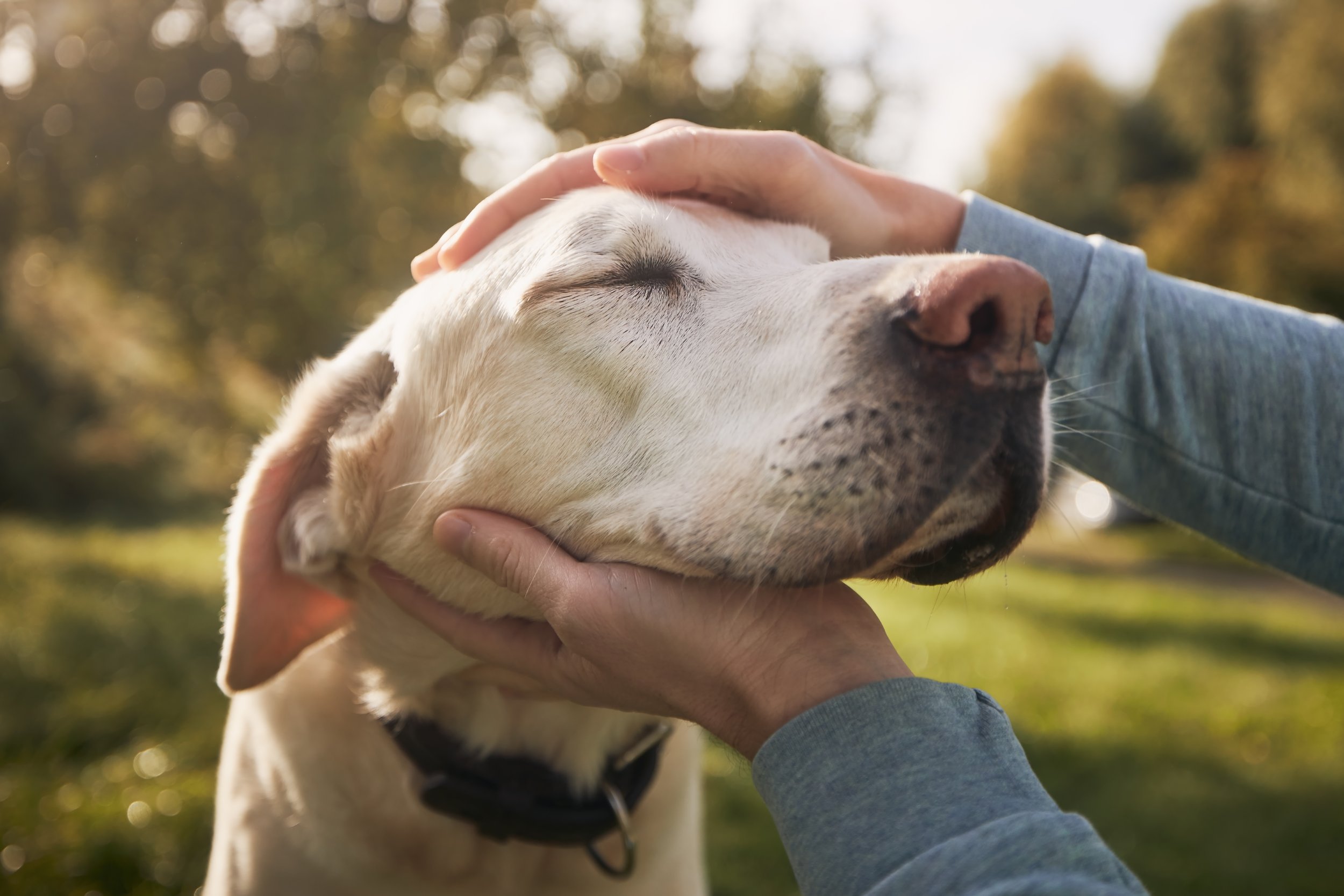Living with a Blind Pet
Christina Korb, DVM
DJ Haeussler, Jr., MS, DVM, DACVO
Even with the best ophthalmic care, there are several conditions that can to lead to permanent blindness in your pet. If the cause for blindness is limited to the eyes and your pet is otherwise healthy, blind pets can adapt well and lead a rather normal life. When considering all of your pet’s senses, their hearing and sense of smell is just as important as their eyesight, so blind pets will rely more on these other senses as well as their sense of touch to adapt to their blindness.
The following is a list of tips to help you and your pet adjust to their blindness:
Speak to your pet in your normal voice. Talking louder or yelling just adds more stress to the situation. Always be sure to let your pet know when you are approaching. Your voice will comfort your pet.
Teach your dog new commands, such as “stop” or “step up”. These verbal cues will be helpful in unfamiliar surroundings.
Place bells on other pets, or even you, to alert your pet that others are approaching. Your dog will rely on visual buddies to help them navigate your home.
Keep up with your pet’s routine. Blind dogs still love play time with their favorite toys and long walks around the park. These activities will prevent depression in your dog.
Avoid changing the home environment. Your pet will create a mental map and rely on this for navigating your home.
Add safety gates to off limit areas such as stairs, pools, or areas they may become trapped or injured.
Create a home base for your pet. A place where you can keep their crate, bed, food, and water. This is a place your pet can always find and return to if they become disoriented.
Buy toys that make noise. Toys with bells and squeakers will help your dog utilize their sense of hearing. Also try adding scents to their toys to stimulate their sense of smell and to help them track their toys.
Don’t allow your pet to have unsupervised activity outside if they are not in a fenced in area or if they are not on a leash.
Consider having your pet wear a harness notifying other people that they are blind. This may prevent having the individual inadvertently start the pet when approached.
It is important to understand that your pet’s blindness is likely much harder on you than it is for your pet. Your pet can sense your emotions, so it is important to stay positive and treat your furry family member the same way you did before the blindness.

